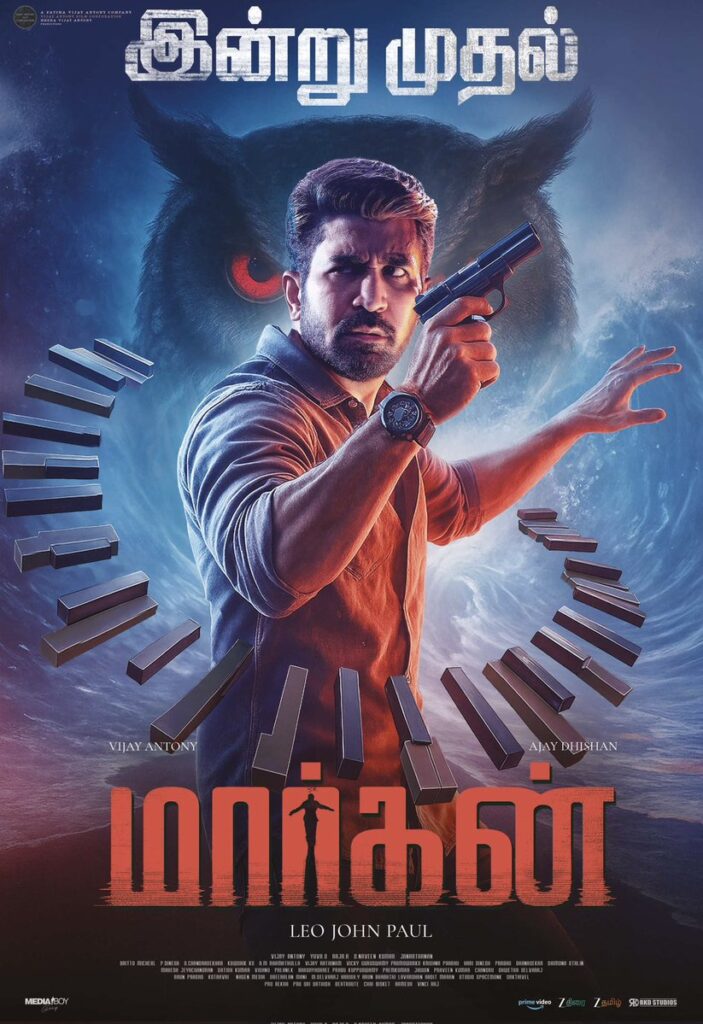
by Sam Trailerman
Maargan is a bold entry into Tamil cinema’s crime thriller genre, blending paranormal intrigue with psychological investigation.
At its core is a disturbing mystery: a killer leaves behind cryptic writings like “When the whole space is dark, why do the stars alone spark?”—a chilling clue scrawled on a wall before a string of intravenous chemical-induced murders.
Victims are found with bodies blackened, eerily resembling the jet-black Ayam Cemani chicken—a grotesque visual metaphor that lingers.
Starring Vijay Antony as the determined police officer Dhruv Korak, Maargan delves into themes of mortality, identity, and perception.
The title itself, derived from the Telugu word “Margam” (meaning “path” or “route”), aptly reflects Dhruv’s arduous journey to uncover a serial killer whose victims—and even the investigator—are left physically transformed.
Dhruv’s own body is half-darkened, a living symbol of trauma and pursuit, evoking the spectral image of Mystique from X-Men.
Making his directorial debut, Leo John ambitiously orchestrates a genre-blending narrative, though occasionally the plot wobbles under the weight of its supernatural aspirations.
The film introduces Tamizharivu, portrayed compellingly by debutant Ajay Dishan—a gifted swimmer with an eidetic memory who gains access to the astral plane simply by entering water. These paranormal turns, while occasionally jarring, are imaginative and daring, though they do challenge the viewer’s suspension of disbelief.
As a viewer familiar with investigative thrillers featuring ghosts, monsters, and mythical figures, I initially underestimated Maargan. I should have known better!
Its 2-hour-and-12-minute runtime evolved from my usually drab white rice and sambar simplicity into a full-course experience—by adding on spicy notes of papadam, mango pickle, and curd chilli.
Vijay Antony’s performance anchors the film, delivering his trademark idiosyncratic genre fusion, and nearly every character is suspicious, fuelling constant tension.
The film’s investigation team—Kaali (Mahanadhi Shankar) and Sruthi (Brigida Saga)—adds authenticity and emotional texture to Dhruv’s journey. Unusually, the story truly begins after a prime suspect is apprehended, flipping the conventional thriller structure and deepening the psychological stakes.
But Maargan isn’t just a thriller. It’s a social mirror. In a world that still prizes fair skin, the film subtly critiques colourism and the pain of invisibility.
By portraying blackened bodies not merely as deathly symptoms but as reflections of societal rejection, Maargan dares to humanise what many ignore.
WE